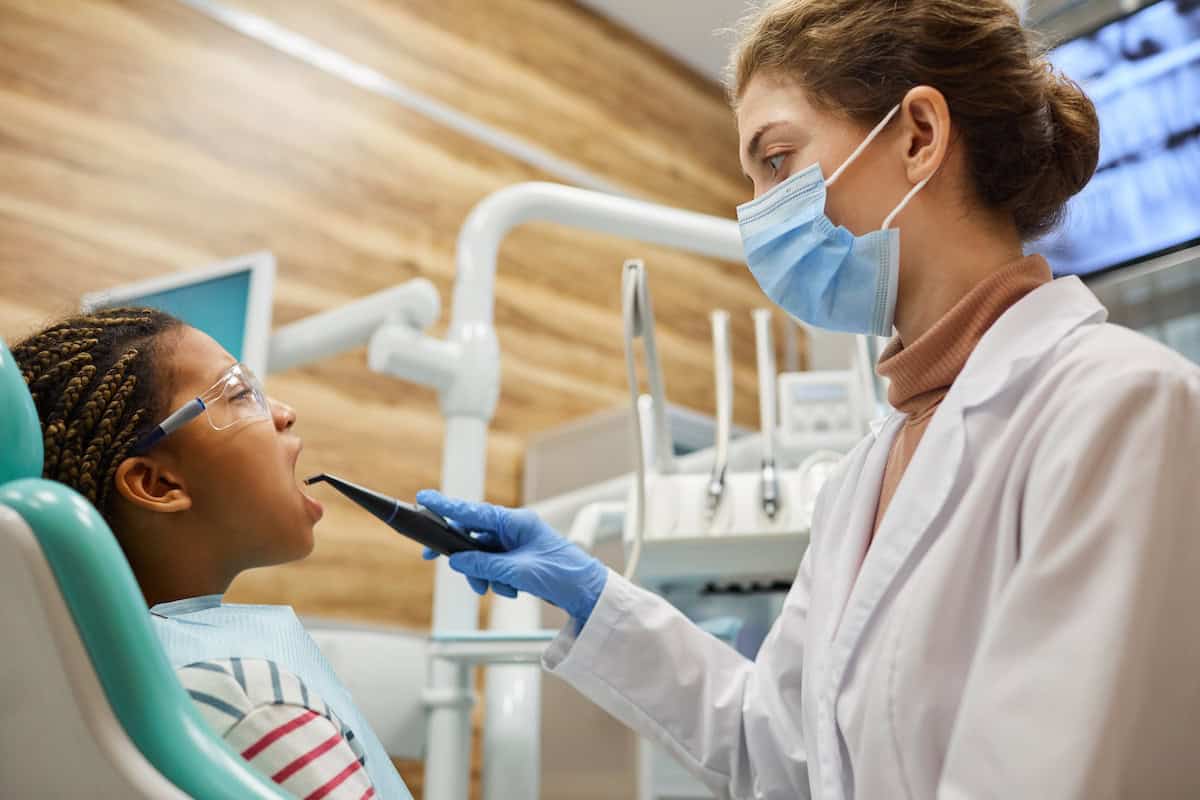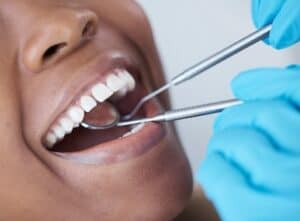
16 Jan How Often Should You Visit the Dentist for a Checkup?
When Should You Visit the Dentist for a Checkup?
Taking care of your teeth is essential not only for a bright smile but also for your overall health. While most people are diligent about brushing and flossing daily, one aspect of dental care that is often overlooked is how frequently you should visit the dentist for a checkup.
Regular dental visits are crucial for maintaining good oral hygiene and preventing more serious health issues. However, determining how often you need to visit the dentist for a checkup depends on various factors such as your oral health, lifestyle, and risk of developing dental problems.
In this blog, we will explore the importance of dental checkups, how often you should visit the dentist, and why these visits are essential for your long-term oral health.
The Importance of Regular Dental Checkups
Before we dive into the specifics of how often you should visit the dentist, it’s important to understand why regular dental checkups are so essential. Dental checkups are more than just professional cleanings; they are an opportunity for your dentist to identify early signs of dental problems that may not be visible to you. Some of the key benefits of regular dental checkups include:
- Early Detection of Dental Issues: Many dental problems, such as cavities, gum disease, and oral cancer, can develop without noticeable symptoms in the early stages. During a checkup, your dentist can identify these issues before they become more serious and require expensive, invasive treatments.
- Preventive Care: Professional cleanings during checkups remove plaque and tartar buildup that regular brushing and flossing cannot. This helps prevent tooth decay, gum disease, and bad breath. Your dentist may also apply fluoride treatments to strengthen your enamel and reduce the risk of cavities.
- Maintaining Good Oral Health: Regular checkups help ensure that your teeth and gums remain healthy. Consistent visits provide an opportunity for your dentist to monitor your oral health over time and make recommendations to improve your hygiene habits if needed.
- A Healthy Mouth is Connected to Overall Health: Poor oral health has been linked to a variety of systemic health issues, including heart disease, diabetes, and stroke. By maintaining regular dental visits, you not only protect your teeth but also help protect your overall well-being.
Now that we understand why dental checkups are important, let’s explore how often you should visit the dentist.

How Often Should You Visit the Dentist?
The American Dental Association (ADA) recommends that most people visit the dentist at least once every six months for a routine checkup and cleaning. However, the frequency of your visits may vary depending on several factors. Here’s a breakdown of how often you should visit the dentist based on your specific oral health needs:
1. Standard Recommendations for Healthy Teeth and Gums
If you have no significant dental problems, such as gum disease or cavities, and practice good oral hygiene at home (brushing twice a day, flossing daily, and eating a healthy diet), visiting the dentist every six months is generally sufficient. These routine visits will allow your dentist to monitor the health of your teeth and gums, remove plaque and tartar buildup, and identify any potential problems early on.
2. For Individuals with Increased Risk of Dental Problems
Some people may need to visit the dentist more frequently than every six months due to increased risk factors. These individuals might be advised to schedule checkups every three to four months. Risk factors include:
- Gum Disease: If you have a history of gum disease or are currently experiencing symptoms such as bleeding gums, your dentist may recommend more frequent visits to monitor and treat the condition.
- Dry Mouth: Saliva helps wash away food particles and bacteria. If you suffer from dry mouth (which can be caused by medications, health conditions, or dehydration), you may be at a higher risk of tooth decay and gum disease, and more frequent checkups may be necessary.
- Smoking or Tobacco Use: Tobacco use increases the risk of gum disease, tooth decay, and oral cancer. Smokers should visit the dentist more often for professional cleanings and screenings.
- Diabetes: People with diabetes are more prone to gum disease and other oral health issues. If you have diabetes, your dentist may recommend more frequent checkups to monitor your oral health.
- Braces or Other Dental Appliances: If you wear braces, retainers, or other dental appliances, more frequent visits may be required for adjustments and to ensure your teeth are properly aligned and healthy.
- Frequent Cavities: If you tend to get cavities often, your dentist may recommend more frequent visits to monitor your oral health and apply preventive treatments such as fluoride or sealants.
3. For Children
Children need to start seeing a dentist within six months of their first tooth appearing or by their first birthday, whichever comes first. Early dental visits are important to ensure that your child’s teeth are developing properly and to establish a foundation of good oral hygiene habits.
After the initial visit, most children should visit the dentist every six months, but depending on their dental health, some may need to visit more frequently.
Special Circumstances That May Require More Frequent Visits
While the six-month rule is a good general guideline, there are certain situations in which more frequent dental checkups may be necessary. These special circumstances may include:
1. Pregnancy
Pregnant women experience hormonal changes that can affect the health of their gums, leading to a condition known as pregnancy gingivitis. This condition can cause red, swollen, and bleeding gums. If you’re pregnant, it’s important to see your dentist more frequently for checkups to maintain healthy gums and reduce the risk of complications such as preterm labor. Be sure to inform your dentist about your pregnancy so they can adjust their treatment plan accordingly.
2. Tooth Sensitivity
If you experience tooth sensitivity to hot or cold foods and drinks, it’s a good idea to visit your dentist to determine the cause. Tooth sensitivity can be a sign of tooth decay, gum recession, or other underlying issues. In such cases, your dentist may recommend more frequent visits to address the problem before it worsens.
3. Post-Surgical Follow-Up
If you’ve recently had dental surgery or a dental procedure (such as a filling, root canal, or dental implant), your dentist may schedule follow-up visits to ensure that the healing process is progressing smoothly and that there are no complications.

What Happens During a Routine Dental Checkup?
Dental checkups typically consist of two parts: the cleaning and the examination.
- Dental Cleaning: During a routine cleaning, your hygienist will remove plaque and tartar buildup from your teeth, polish your teeth to remove stains, and provide fluoride treatments if necessary. They will also educate you on proper brushing and flossing techniques to improve your home care routine.
- Dental Examination: After the cleaning, your dentist will examine your teeth and gums for any signs of decay, disease, or other issues. They may take X-rays to get a clearer view of your teeth and bone structure and assess for cavities, infections, or alignment problems. Your dental team will also check for signs of oral cancer, which can often go undetected until it has reached more advanced stages.
If any issues are detected during the examination, your dentist will discuss a treatment plan with you and recommend any necessary procedures or preventive measures.
How to Make the Most of Your Dental Visits
To ensure you get the most out of your dental checkups, it’s important to actively participate in your oral care. Here are some tips for making the most of your visits:
- Be Open About Your Oral Health: If you’re experiencing pain, sensitivity, or any other dental concerns, let your dentist know. This will help them tailor their examination and treatment to your needs.
- Ask Questions: If you’re unsure about any aspect of your oral health or dental care routine, don’t hesitate to ask your dentist for advice.
- Follow the Dentist’s Recommendations: If your dentist recommends more frequent visits, treatments, or changes to your oral care routine, make sure to follow their advice to maintain good oral health.
Conclusion
Visiting the dentist regularly is essential for maintaining optimal oral health. While the general recommendation is to visit your dentist every six months, some people may need more frequent visits depending on their risk factors and specific oral health conditions.
By establishing a routine dental care plan and adhering to your unique recommendations, you can prevent tooth decay, gum disease, and other oral health problems. Remember that regular checkups are an investment in both your oral and overall health, helping to ensure a bright, confident smile for years to come.



Sorry, the comment form is closed at this time.